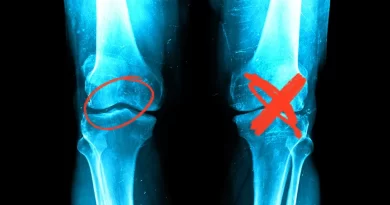Signs that you may have a personality disorder
We all have our unique personalities and thinking patterns. These are shaped by our experiences and the several influences around them, including our family, education, environment etc.
But there can be issues with the way we think, and the way we behave, which forms the crux of personality disorders. This mental health disorder is characterized by unhealthy thinking patterns that affect one’s functioning, relationships, behaviors etc. Inability to change, not being able to connect to others, being unreasonable are some hallmarks of personality disorder.
Personality disorders are, admittedly, a difficult terrain. Unlike stress and anxiety in which the person is quickly able to tell something is off with them, people with PD cannot identify if they are suffering from personality disorder. It then requires assessment from a mental health expert like a Psychiatrist in Lahore for one to realize if they have this problem.
Moreover, there are different types of personality disorders that vary a lot, which can make identifying them even more difficult. However, there are some signs that help in making this identification. These include:
Boundary problems
Personality disorders can also manifest in the form of boundary issues. People with this disorder are unable to determine where to stop. In some cases, people may willingly overstep the boundaries deliberately.
Emotional instability
People with personality disorders also have inability to regulate their emotions, which can have a detrimental impact on not only their own wellbeing, but their relationships as well.
Inconsistent behavior
A sign of personality disorder is the inability to maintain consistent behavior. People tend to act in a different manner when they are in a particular space, but their mannerism might change in a different gathering. Sometimes, the inconsistent behavior can be very dangerous; some abusive people may on the surface be civilized and polite, but only their victims know how ruthless they can be.
Impulsive
While we all can be guilty of being impulsive once in a blue moon, people with personality disorder tend to be this way, usually. They may partake in bouts of self-harm or even suicide ideation, or they may also exhibit reckless tendencies that are rooted in deeply irresponsible behavior.
Issues at work
Most people have to work with others, only a selected few operate as isolated units. Since work already is a charged environment, throwing in people and relations can then make it hard for those suffering from personality disorder.
Having said that, we all run into issues at work, that does not mean that you have personality disorders. The issue is more nuanced.
Relationship issues
Another indicator of personality disorder are the relationship issues, and these are present in almost all the spectrums of the personality disorders.
Some personality disorders might make people too strong minded, that then puts off people, especially those with narcissistic personality disorder. However, the other end including paranoia, dependency, anxiety especially social anxiety, dramatic behavior can also put people off.
Self-esteem problems
While many of us do have self-esteem problems, those with personality disorders might either have too much confidence in their abilities, or too little; they might either be narcissists or have a dependent personality. It can also be that their self-esteem keeps fluctuating, one moment they feel good about themselves, and another moment, they experience low self-worth.
Thinking pattern
Naturally, your personality is contingent a lot on your thinking pattern, the issues of which are then reflected in people with personality disorder.
Usually, they tend to have a disrupted pattern. They may have hallucinations as well in the process. On the spectrum, the narcissists will think thoughts that uplift them, while those on the other end might continuously seek validation.
Getting help
If these symptoms seem familiar to you, then you should not panic. You need to consult a mental health expert like Dr. Aafia Malik for a proper diagnosis, and then management of the disorder.




